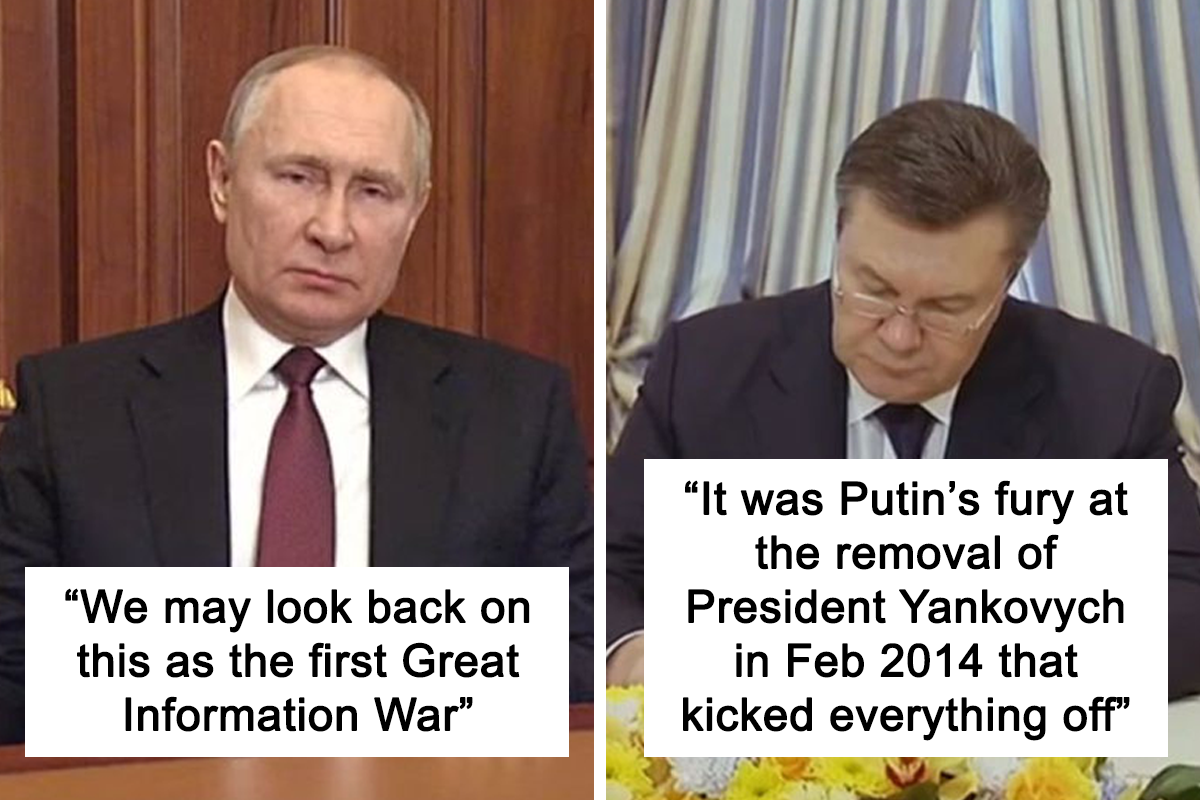
Person Starts An Important Thread About “The Great Information War” So That People Would Know About It
British journalist and author Carole Cadwalladr, who exposed the Facebook–Cambridge Analytica data scandal a few years back, has just published a Twitter thread about what she calls the first Great Information War, and it explains why Russia’s invasion of Ukraine is much more than a regional conflict.
Cadwalladr thinks that Putin and his regime have been targeting the West since at least 2014 and the current bloodshed in Europe is just a part of it. Much of the fighting has been taking place on other fronts as well. Like social media.
On February 24, Russia invaded the European country of Ukraine
Image credits: carolecadwalla
But journalist and author Carole Cadwalladr thinks that Putin’s war against the Western world has been going on for years now
Image credits: alexlourie.photo
Image credits: carolecadwalla
Image credits: News UTR
Image credits: carolecadwalla
Inga Zakšauskienė, a Cold War historian and disinformation scholar, said these practices have been evolving for a long time.
“There have always been attempts to manipulate history and facts, but today it is much easier to do so,” she told the Lithuanian National Television and Radio. “During the Cold War period, it was very expensive to organize disinformation campaigns. […] What is new today is the very swift dissemination of messages and the low cost of producing and distributing them.”
And Putin knows how to use them. “Russia has one of the most capable and technological militaries on the planet,” Justin Pelletier, Professor of Practice of Computing Security at the Rochester Institute of Technology, wrote. “They have advanced intelligence, information warfare, cyber warfare, and electronic warfare capabilities.”
“Russia has used these technologies in recent years in combat in Syria and the Donbas region in eastern Ukraine, and is using them in its current invasion of Ukraine,” he explained.
Information warfare, like the term suggests, is the battle waged in the news media and on social media to bolster popular support; persuade and induce the sympathy of potential allies; and simultaneously spread confusion, uncertainty, and distrust in the enemy’s population.
“Russia has used and is likely to continue to use cyber operations to subvert the Ukrainian government,” Pelletier said. “For example, in the weeks leading up to both the 2014 and 2022 invasions, Ukrainian soldiers were targeted with disinformation designed to sow confusion and disorder in the event of an attack.”
Russian messaging about ‘liberating’ portions of Ukraine is the disinformation most likely aimed at an international audience, and Pelletier expects attempts to legitimize Russia’s actions will continue.
“There is an ongoing contest to control the narrative about what is happening in Ukraine. Russia is running an active disinformation campaign and I expect it is using AI to find and generate content at a rapid rate.”
Image credits: carolecadwalla
Image credits: U.S. federal government
Image credits: carolecadwalla
Image credits: Gage Skidmore
Image credits: carolecadwalla
Image credits: carolecadwalla
Image credits: Jwslubbock
Image credits: carolecadwalla
Image credits: carolecadwalla
Image credits: carolecadwalla
Image credits: carolecadwalla
Social media has long been instrumental in distributing frontline footage, but the war in Ukraine presents a new scale of global conflict for private platforms to navigate.
Tech companies are facing a never-ending stream of mis- and dis- information from the Russian propaganda machine with violent content, and on-the-ground footage of fleeing refugees, causing world leaders and tech watchdogs to call for greater accountability and transparency in how companies manage their powerful platforms.
Ukrainian officials last week pleaded with US tech giants to take action, asking them to restrict access to their services within Russia, more forcefully curtail the spread of misinformation, and crack down on Russian state-backed outlets.
Over the weekend, the prime ministers of NATO members Poland, Lithuania, Latvia, and Estonia sent a joint letter to the chief executives of Google, Facebook, and Twitter, urging them to proactively suspend accounts denying, glorifying, or justifying war aggression, war crimes, and crimes against humanity.
They also suggested the companies take down the official accounts of Russian and Belarusian government institutions, state-controlled media, and personal accounts of the countries’ leadership and their associates, which routinely disseminate false information about the invasion.
Some platforms did take action. Twitter, for example, said that on Sunday it had permanently suspended more than a dozen accounts and blocked some content that violated its “manipulation and spam” policy.
Image credits: Pixabay
Meta, which owns Facebook, reported Monday it removed a network run by people in Russia and Ukraine that “ran a handful of websites masquerading as independent news outlets, publishing claims about the West betraying Ukraine and Ukraine being a failed state.”
After talking to Kyiv officials, the company also said it would restrict access to several accounts in Ukraine, including some Russian state media organizations. It’s also “reviewing other government requests to restrict Russian state-controlled media.”
Meanwhile, Google confirmed it has temporarily disabled the Google Maps traffic layer and live information on how busy places like stores and restaurants are in Ukraine for the safety of local communities in the country, after consulting with sources including regional authorities.
Hopefully, the West is finally waking up and willing to fight on this battlefield as well.
Image credits: carolecadwalla
Image credits: carolecadwalla
Image credits: carolecadwalla
Image credits: Trump White House Archived
Image credits: carolecadwalla
Image credits: carolecadwalla
Image credits: Kremlin.ru
Image credits: carolecadwalla
Image credits: carolecadwalla
Image credits: carolecadwalla
People believe her thoughts are spot on
Image credits: peterjukes
Image credits: ElphinstoneJack
Image credits: Davo_Mack
Image credits: bennettkdavis
Image credits: dcracy3
Image credits: MikeMol1982
Image credits: Mrs_Pea68
Image credits: BrokeBritannia
Image credits: Richard_Norfolk
Image credits: WiblyWoblyMoony
177Kviews
Share on FacebookI feel like a bunch of us have been very aware of this information war the whole time though? I have literally been talking about it for years, and so have many others.
I've been saying this for years and people said I was just paranoid.
Load More Replies...What I still can't understand is how so many people fell for the really obvious things
Because they don't want to know. It's too scary for most and they put their hands over their ears, close their eyes and go "lalala I can't hear or see you". Iike a 4 yo.
Load More Replies...I feel like a bunch of us have been very aware of this information war the whole time though? I have literally been talking about it for years, and so have many others.
I've been saying this for years and people said I was just paranoid.
Load More Replies...What I still can't understand is how so many people fell for the really obvious things
Because they don't want to know. It's too scary for most and they put their hands over their ears, close their eyes and go "lalala I can't hear or see you". Iike a 4 yo.
Load More Replies...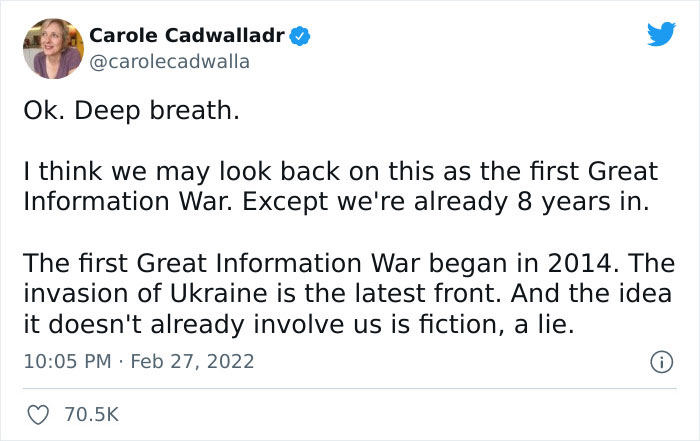
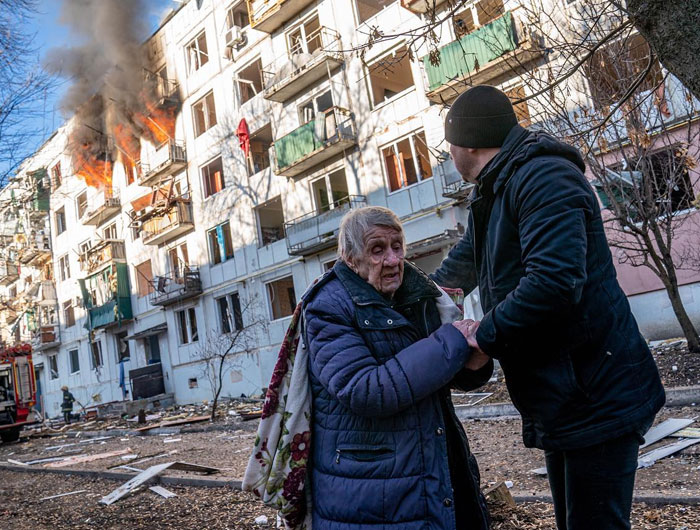
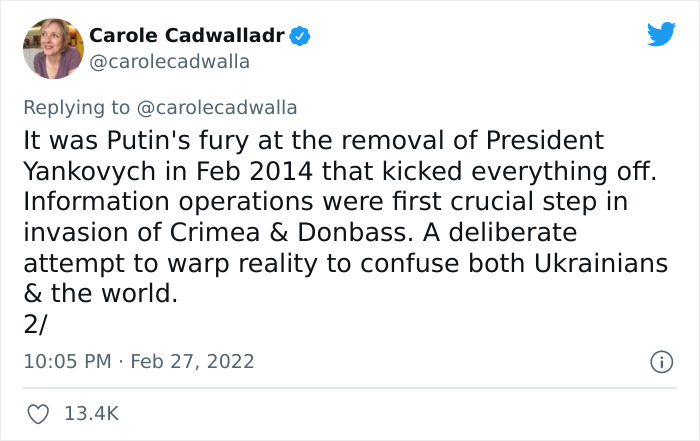
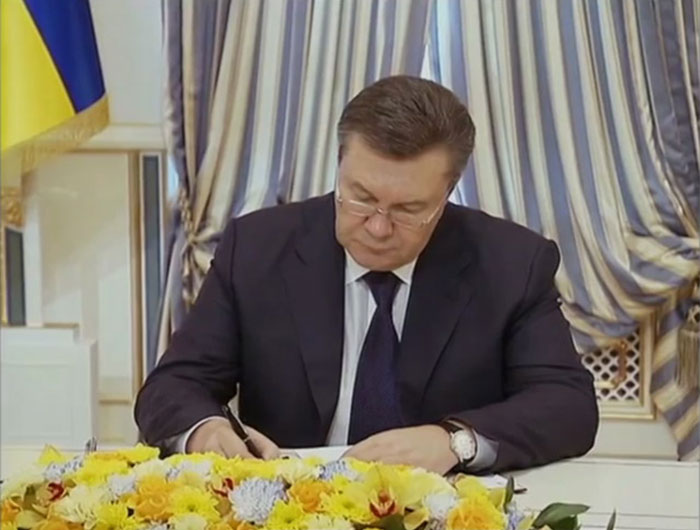
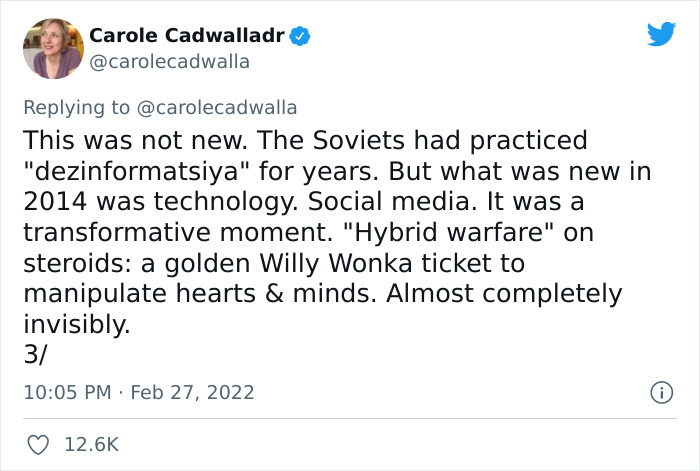
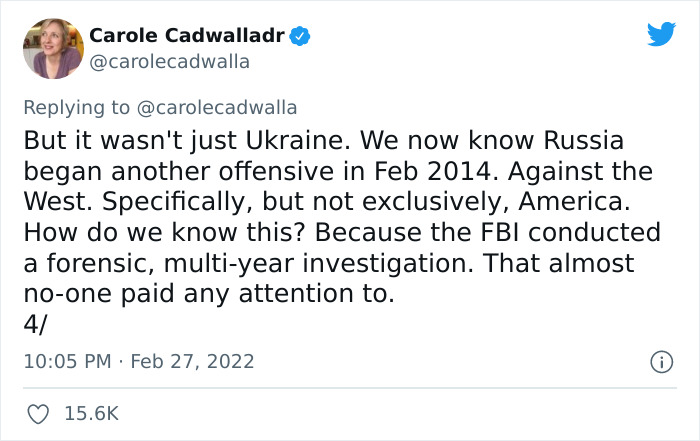
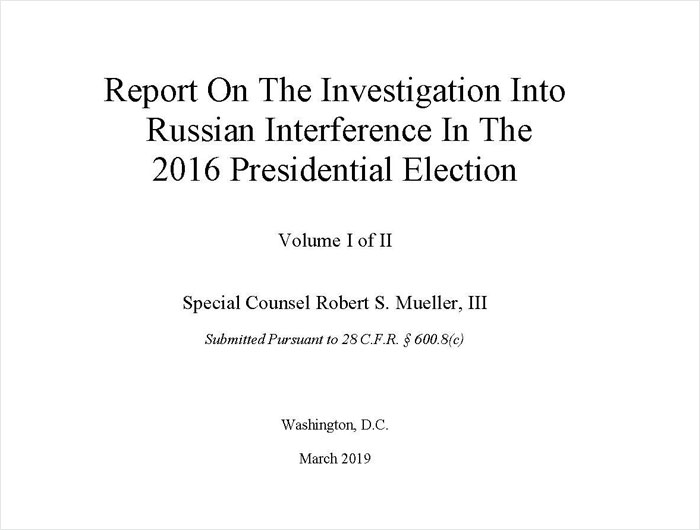
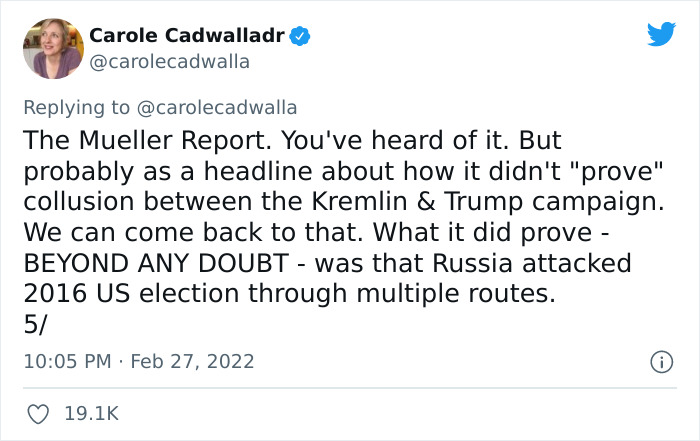
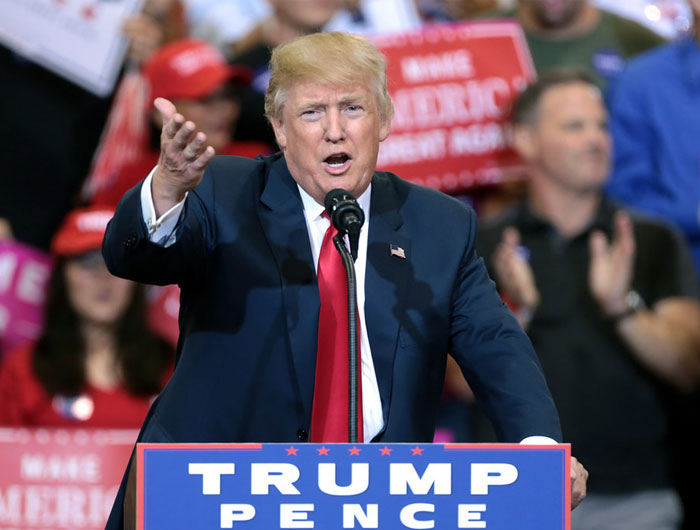
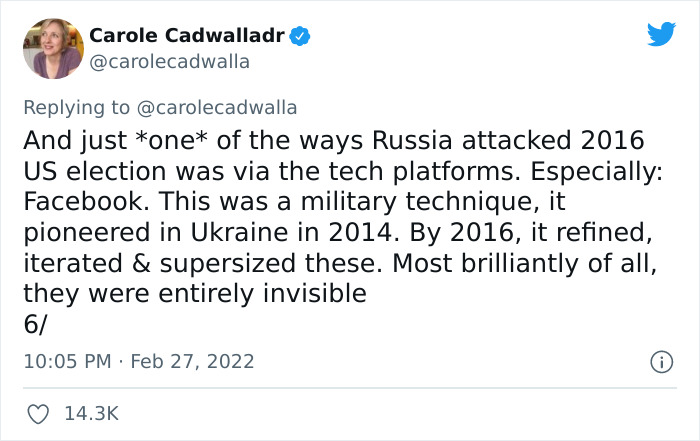
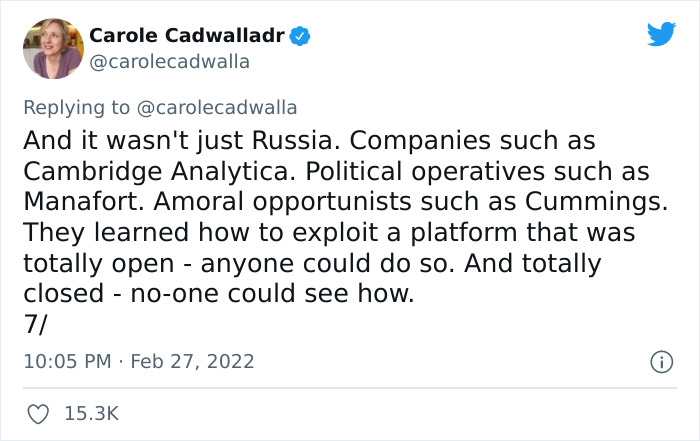
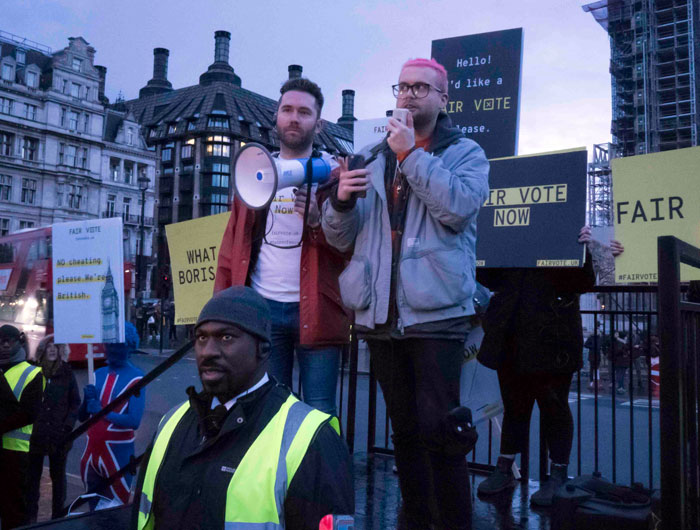
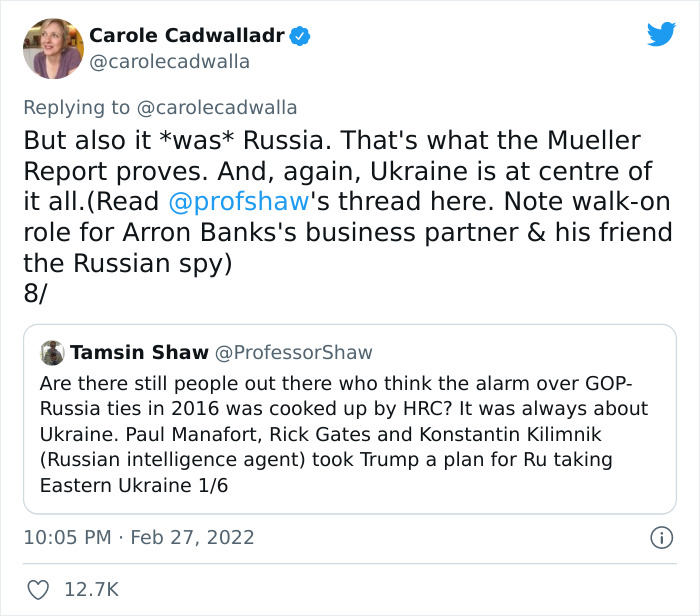
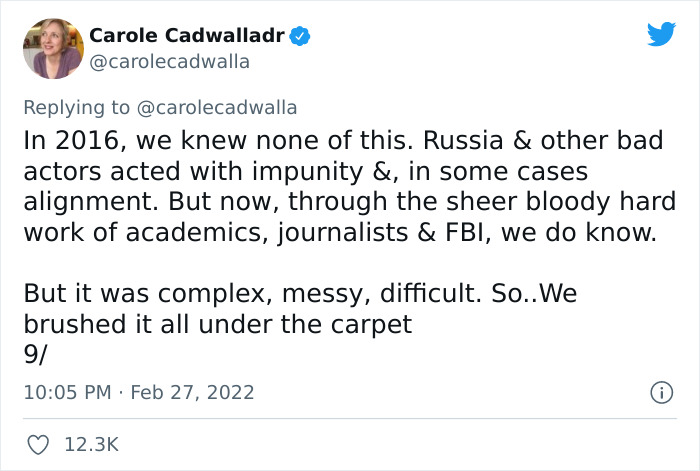
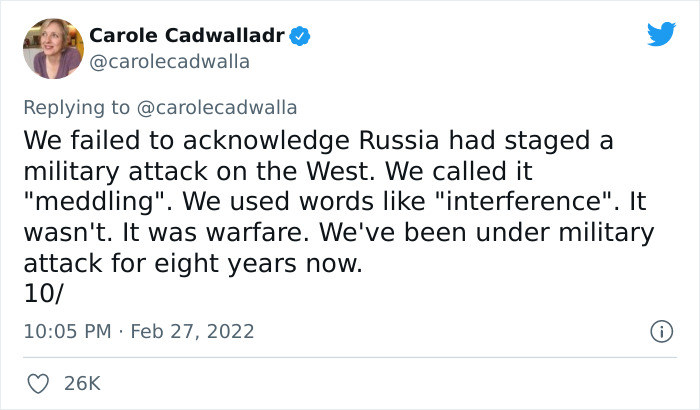
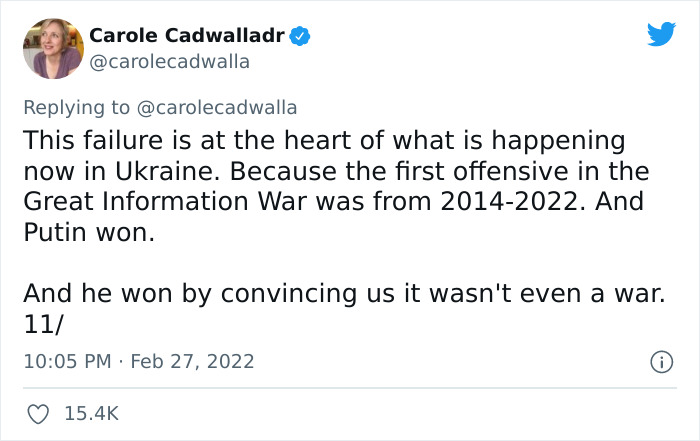
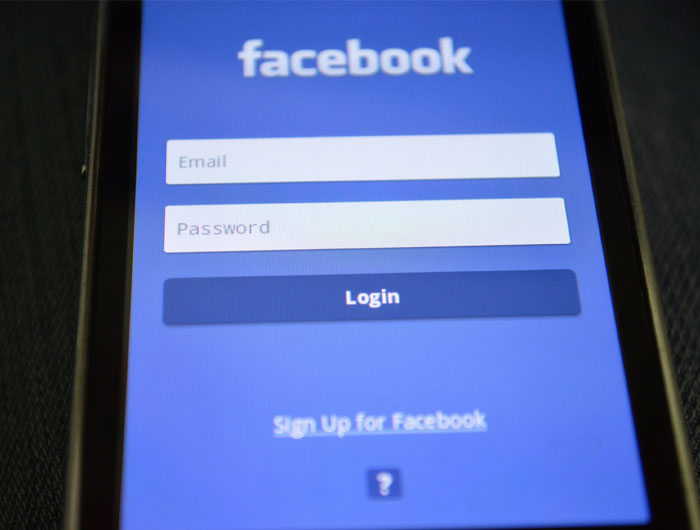
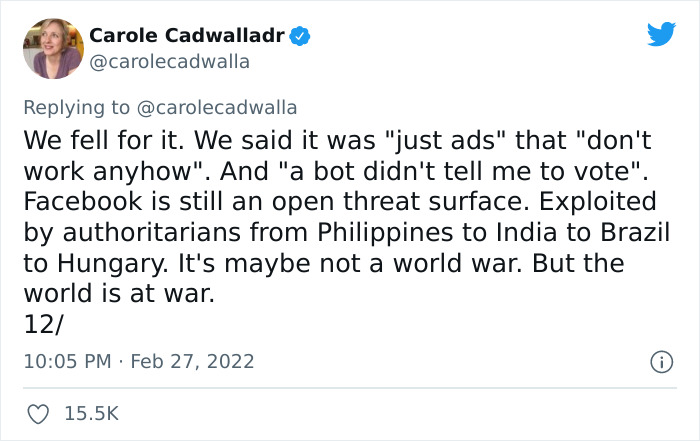
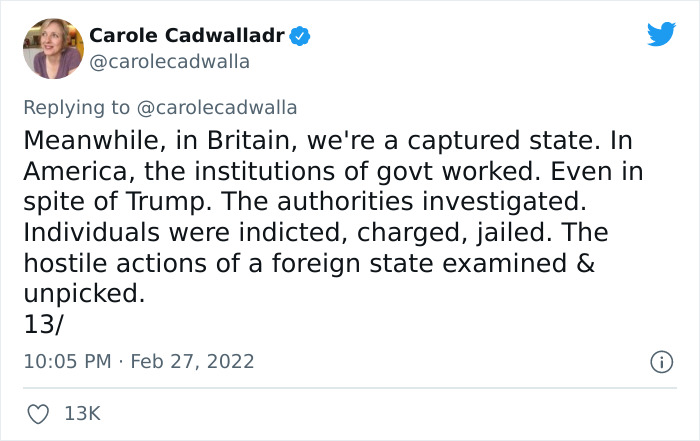
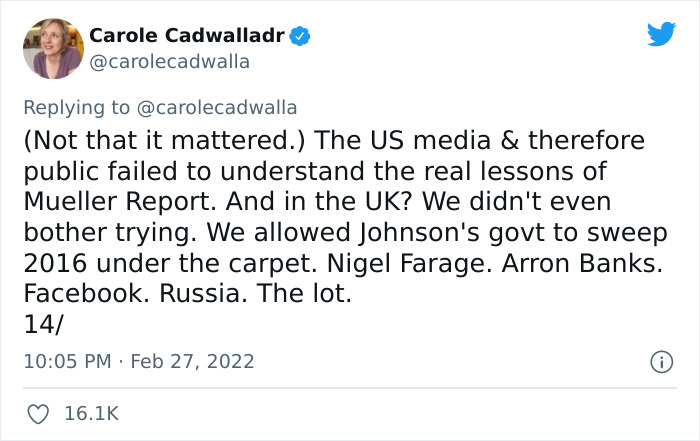

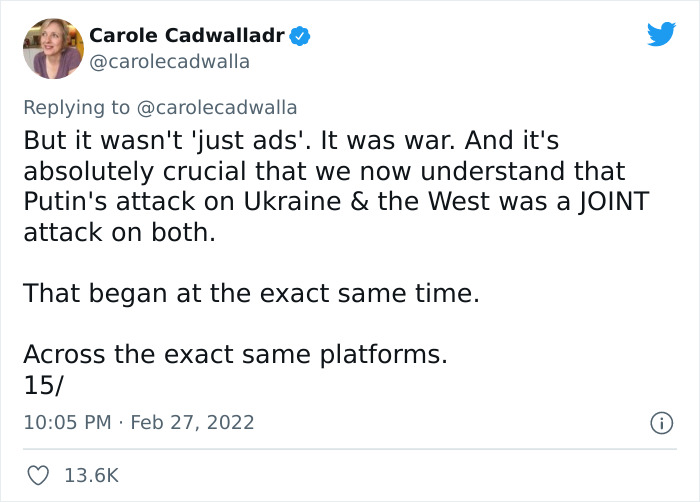
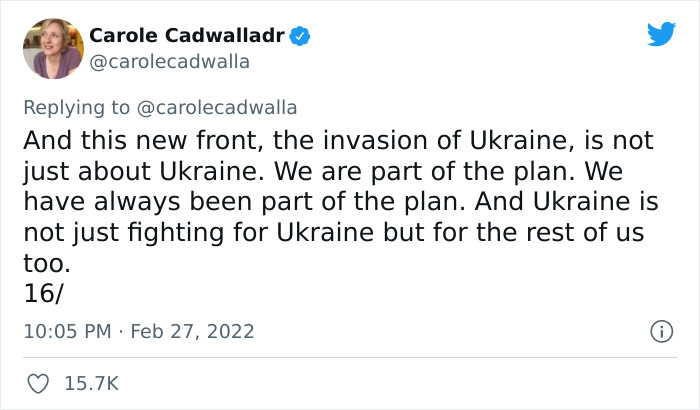
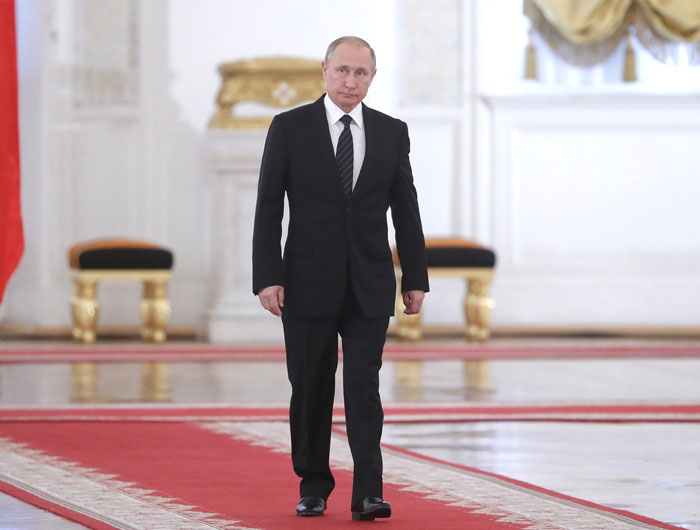
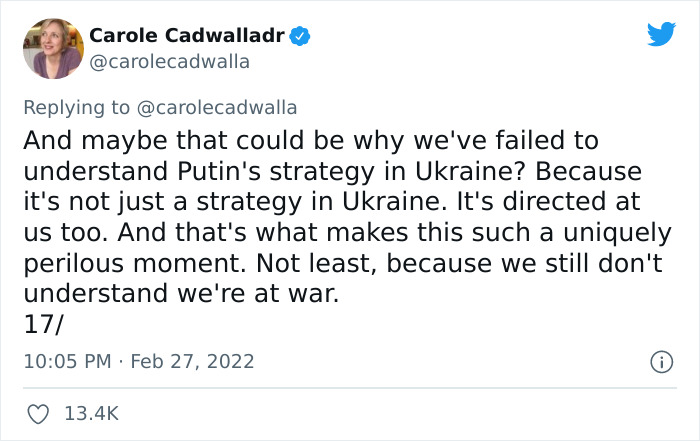
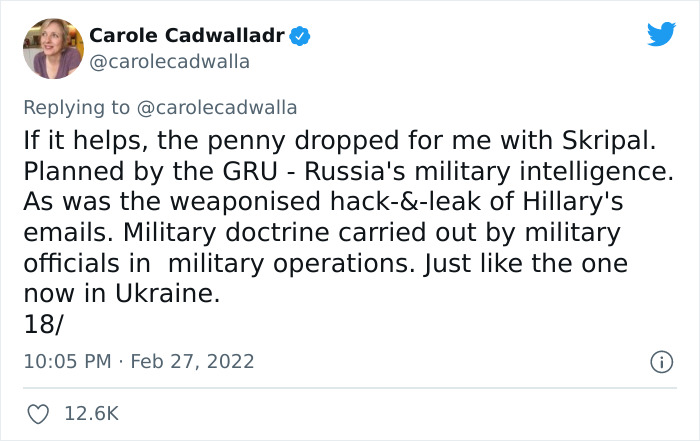
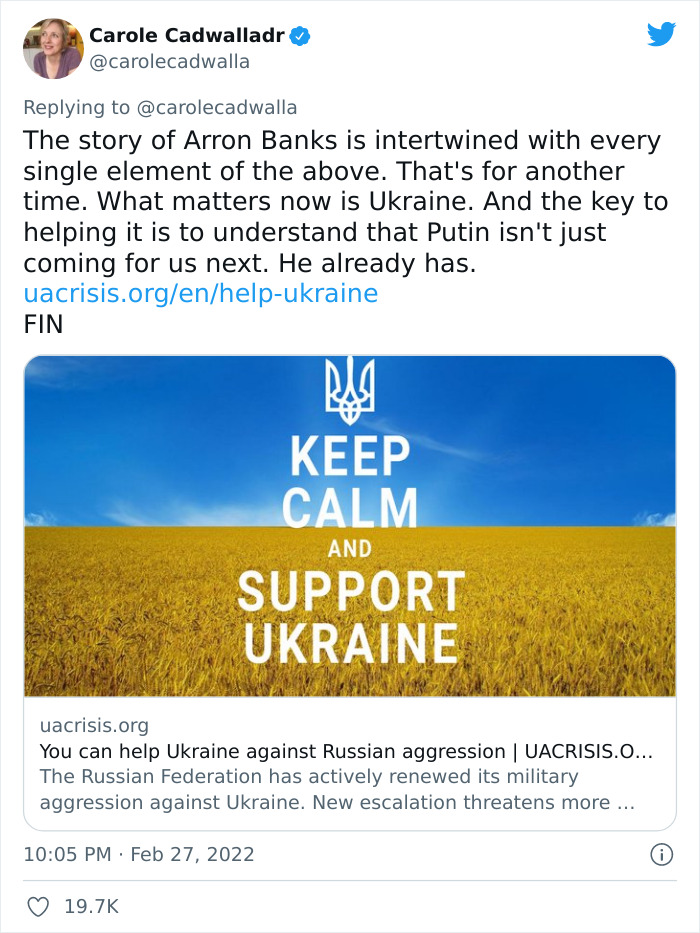
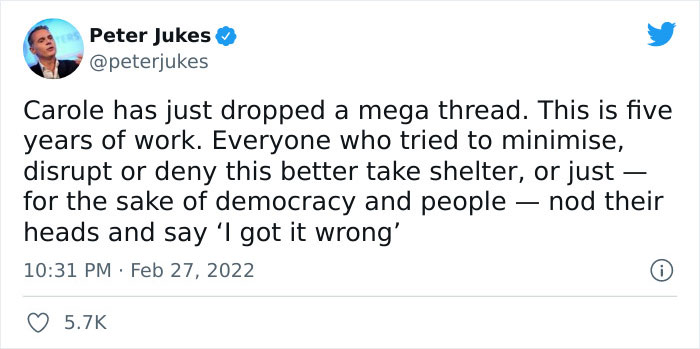
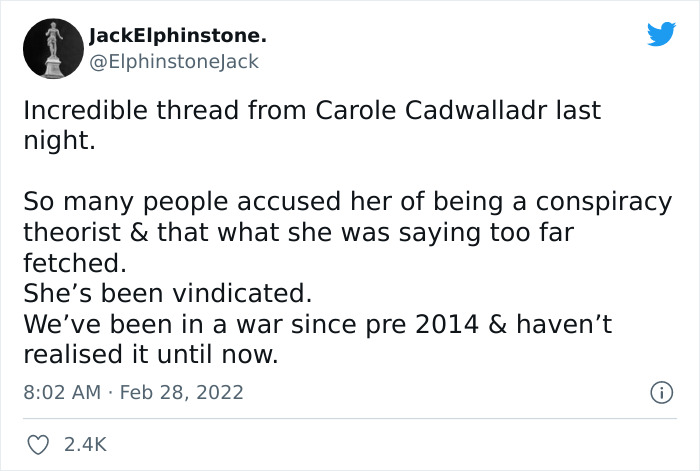
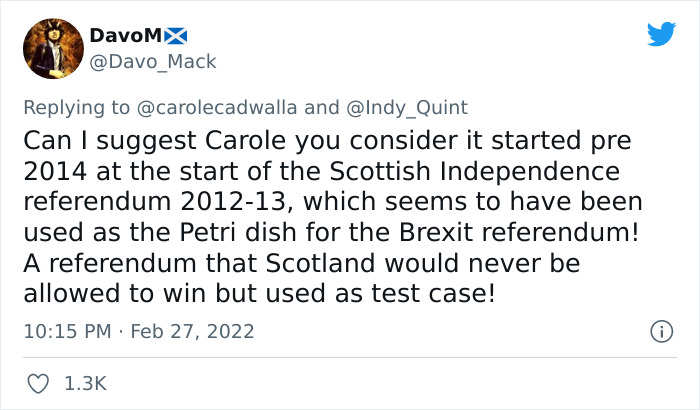
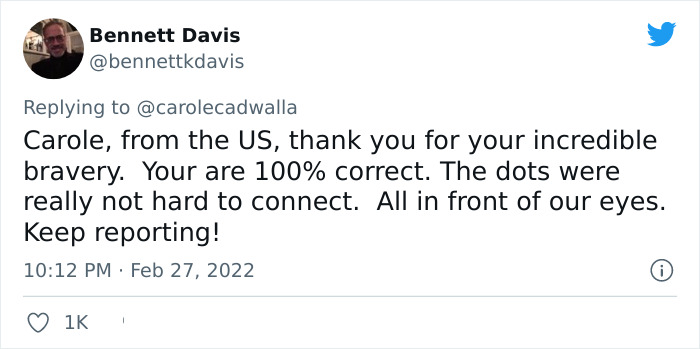

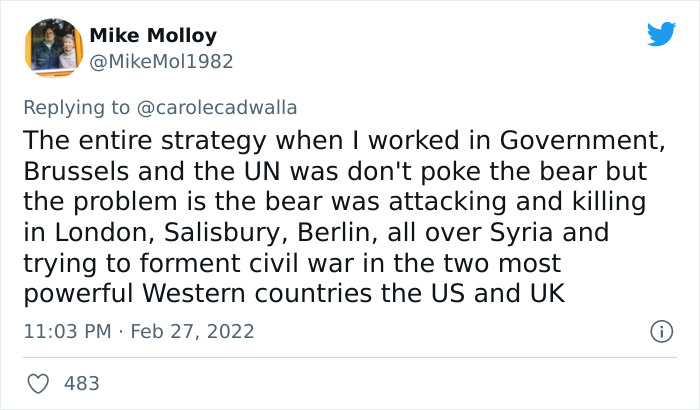
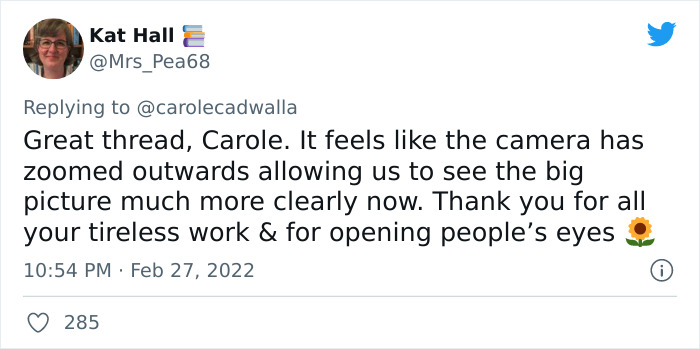
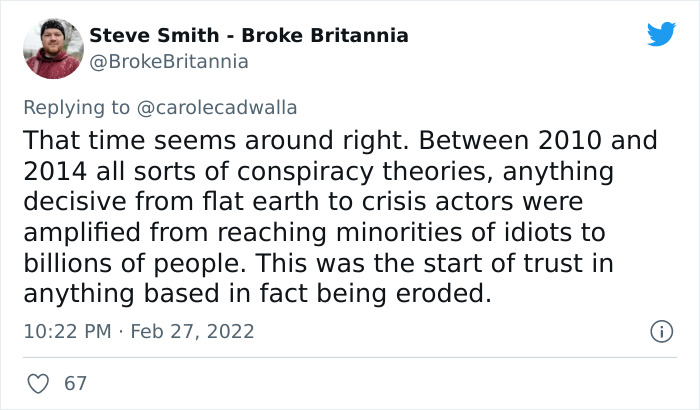
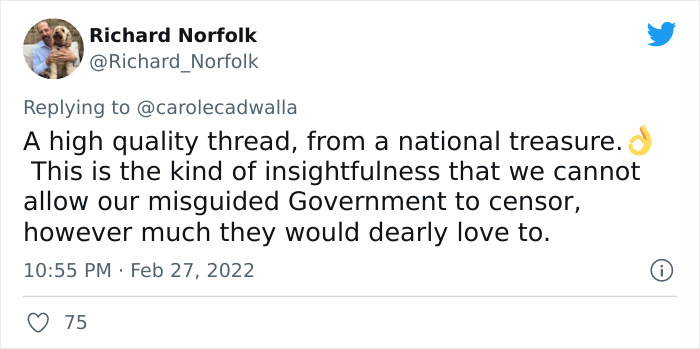
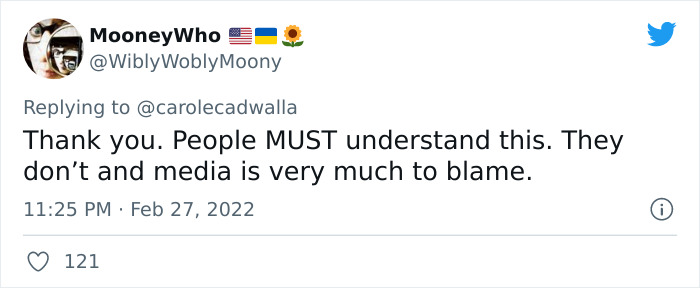




147
138